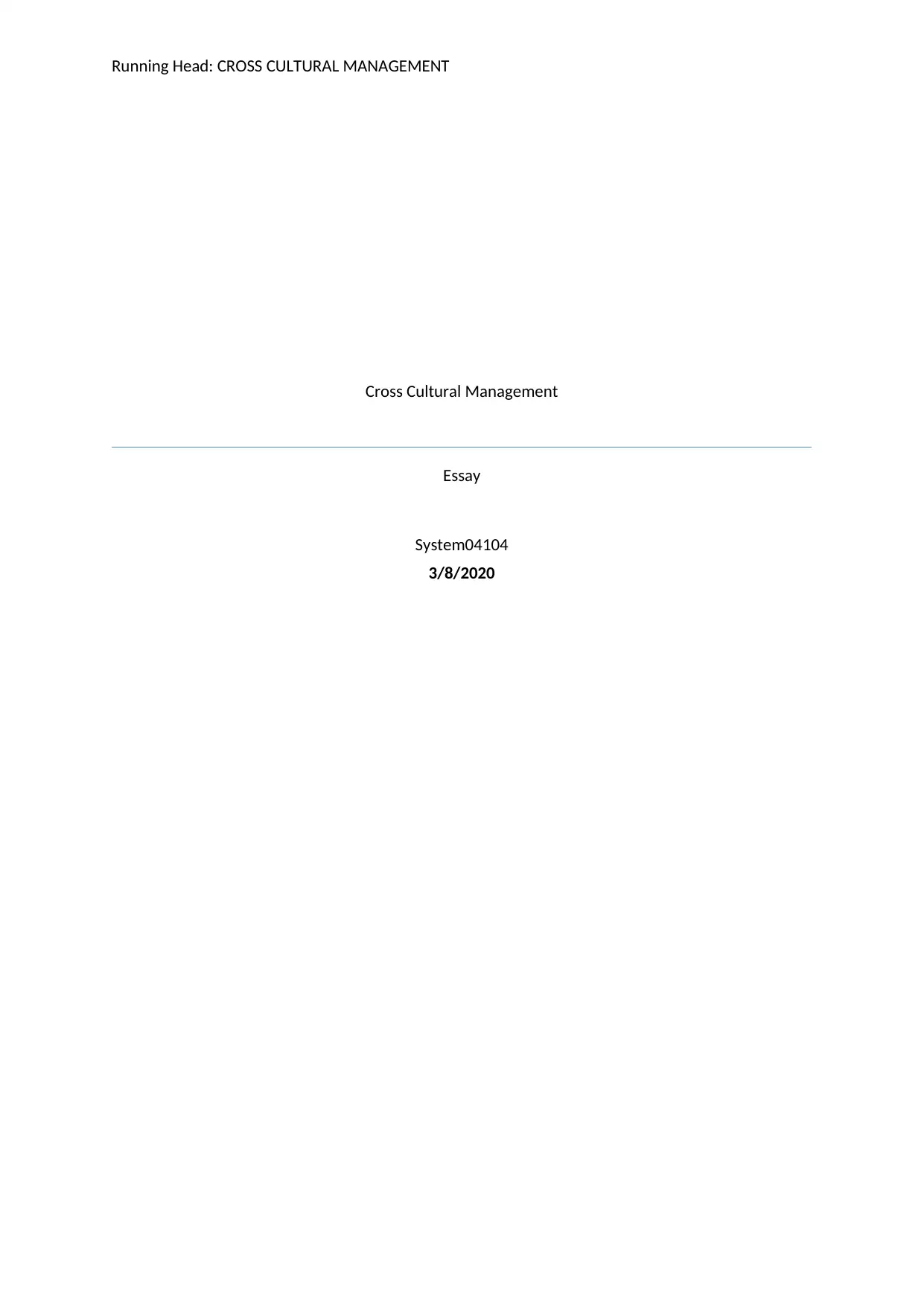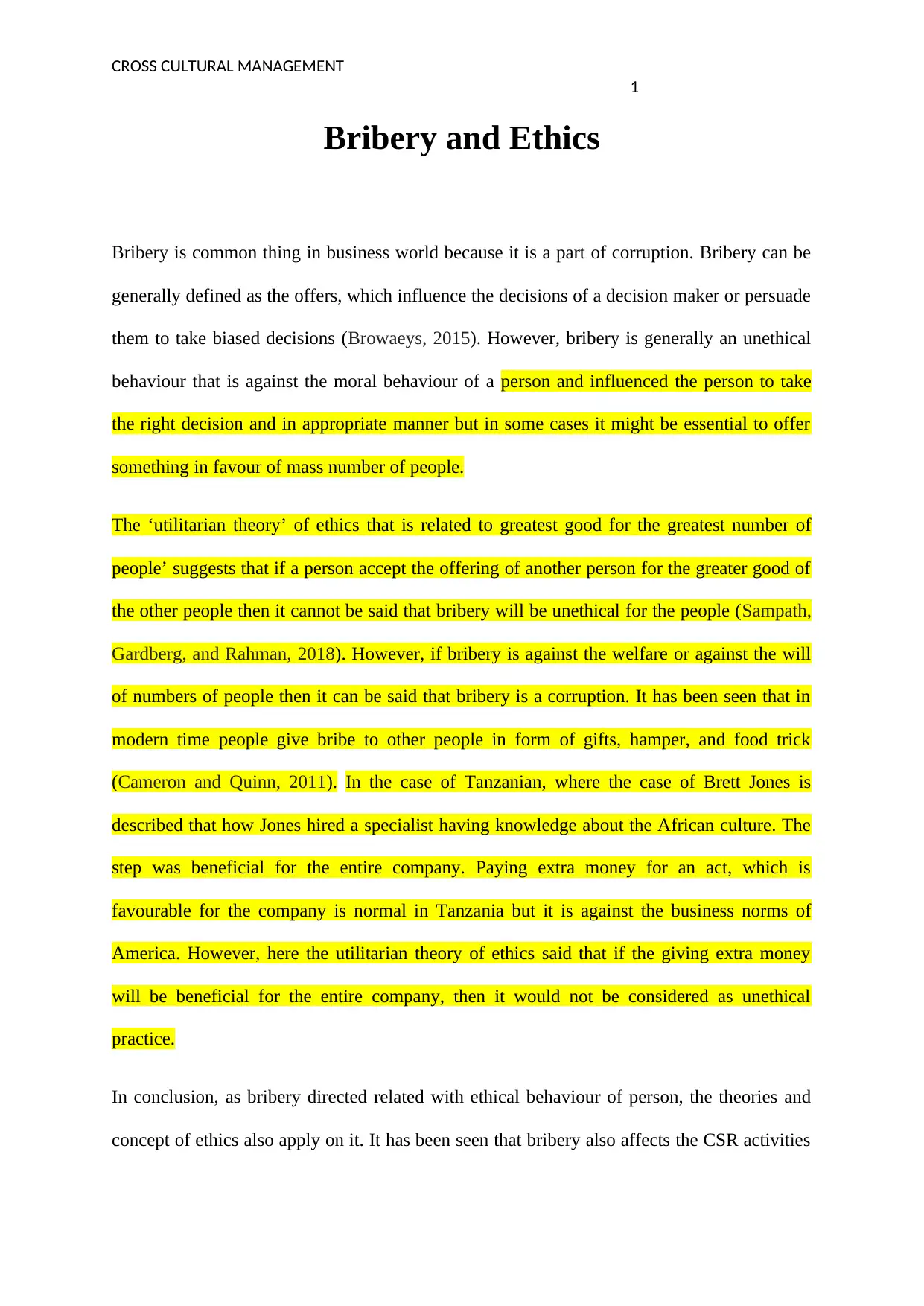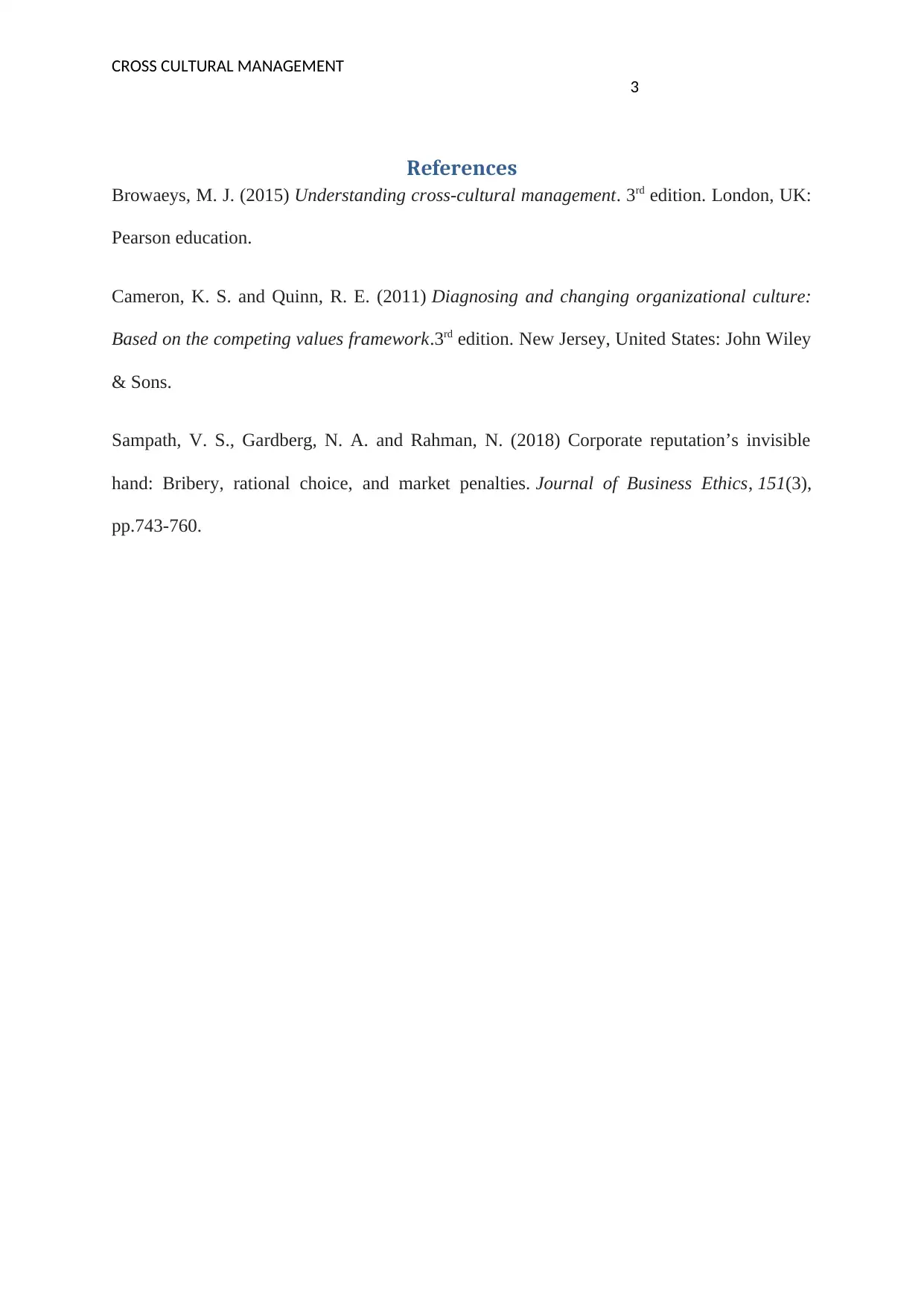Cross-Cultural Management Essay: Bribery and Ethical Decision-Making
VerifiedAdded on 2022/08/19
|4
|493
|12
Case Study
AI Summary
This essay explores the ethical considerations of bribery within the context of cross-cultural management, using the case of Brett Jones in Tanzania as a focal point. It defines bribery and its unethical nature, contrasting it with situations where it might be considered acceptable under the utilitarian theory, which emphasizes the greatest good for the greatest number of people. The essay examines how bribery can influence decision-making, affect Corporate Social Responsibility (CSR) activities, and impact a company's organizational culture. The case of Brett Jones, who adapted to Tanzanian business practices, highlights the conflict between local customs and the ethical standards of his American-based company, Hydro Generation. The essay references key academic sources to support its arguments, concluding that bribery's ethical implications are directly linked to an individual's ethical behavior and the application of ethical theories.
1 out of 4






![[object Object]](/_next/static/media/star-bottom.7253800d.svg)